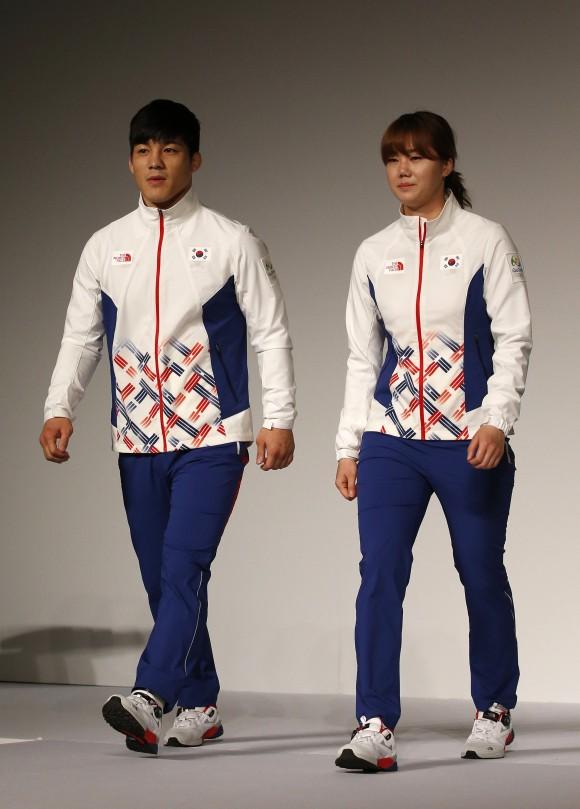With Brazil currently being ravaged by the Zika virus, South Korea is pulling out all the stops when it comes to protecting its athletes competing in this Summer’s Olympic Games in Rio de Janeiro.
The country’s Olympic committee said on April 27 that its teams’ new get-ups will be “mosquito-repellent,” consisting of chemically-enhanced jackets, long pants, and long-sleeved shirts.

South Korean Olympic wrestling athlete Kim Hyeon-woo, left, and handball athlete Kim On-a, right, present the South Korean Olympic team uniforms for the medal ceremony of the 2016 Rio de Janeiro Olympic Games at Korean National Training Center in Seoul, South Korea, April 27, 2016. AP Photo/Lee Jin-man




